The Kalita Wave 155 Stainless Steel is no stranger in the coffee industry as they are widely known for their flat-bottom dripper. It has claimed attention since 2013-2016 in the Brewers Cup competition by many top baristas.
Today, the popularity of the Kalita Wave has slightly wavered but its foothold in the industry has remained pivotal.
About Kalita
Kalita Co. was founded in 1959 in Tokyo, Japan. The company pioneered the development of flat-bottom coffee brewers, creating innovative coffee equipment that set a new standard in the industry.
If you have visited Japan, you have likely seen Kalita equipment being used in coffee shops, thanks to its established history. During my visit to Fukuoka, I observed a barista skillfully performing the Kalita pour-over with intuitive, rhythmic pulses.
This straightforward brewing style was favored by the older Japanese generation, allowing them to enjoy their coffee without much sophistication. Before we delve into the Kalita Wave, let’s take a look at another key product from Kalita: the 101.
About the Kalita 101
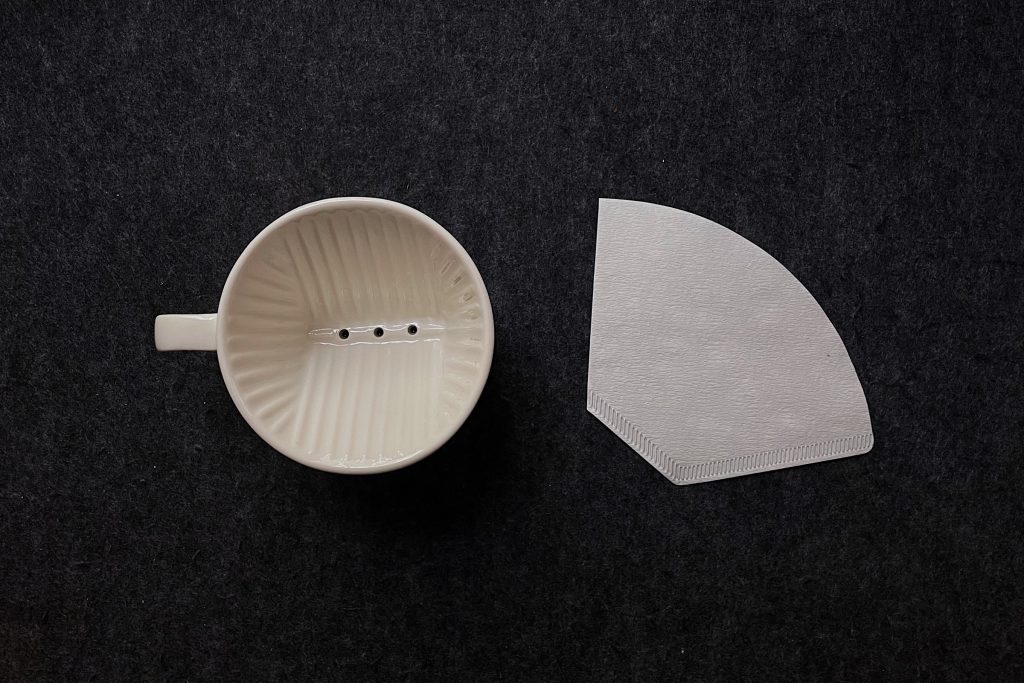
The Kalita 101 and 102 are trapezoid-shaped brewers available in both plastic and ceramic. These early Kalita designs feature a flat surface, inner ribs, and a three-hole bottom, setting them apart as innovative brewing tools.
The key difference between the Kalita Wave 155 and the Kalita 101 lies in their flow rates. The Kalita 101 ceramic has a slightly longer drawdown, approximately 30 seconds more than the Kalita Wave 155 stainless steel. Additionally, the paper filters for the 101 differ from those used with the 155.
If you plan to switch between the two, we recommend using different brewing methods to maximize the benefits of each one’s unique shape and longer drawdown.
About the Kalita Wave
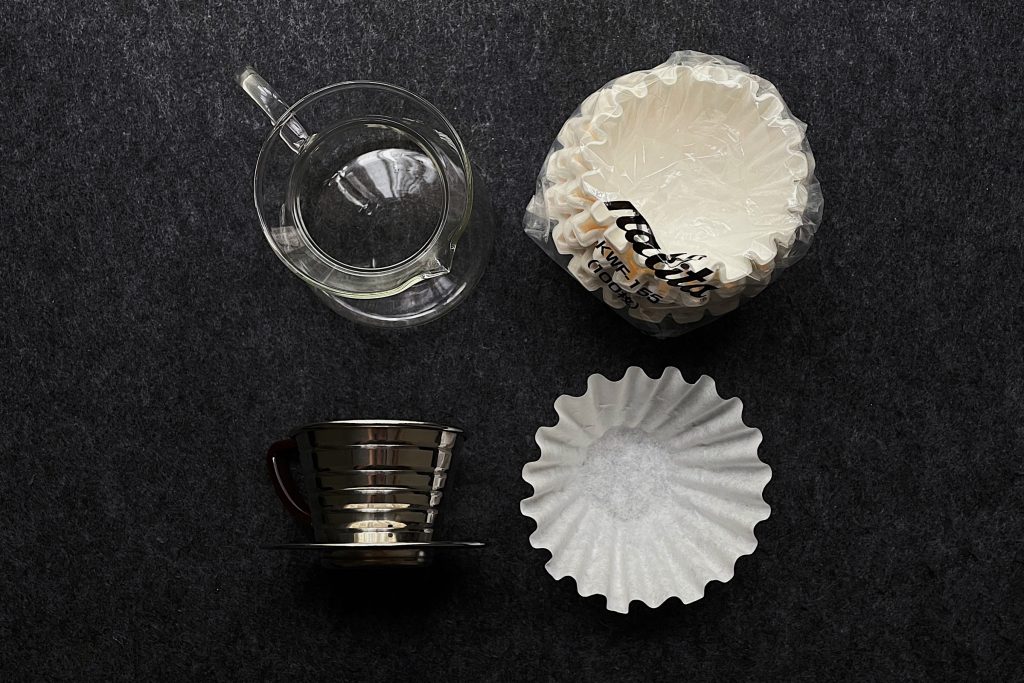
The Kalita Wave comes in two sizes: 155 (for 1-2 cups) and 185 (for up to 4 cups). Each size has a corresponding wave-like paper filter designed to fit the specific dripper. So, if you have a 155 dripper, you will need the 155 Wave paper filter.
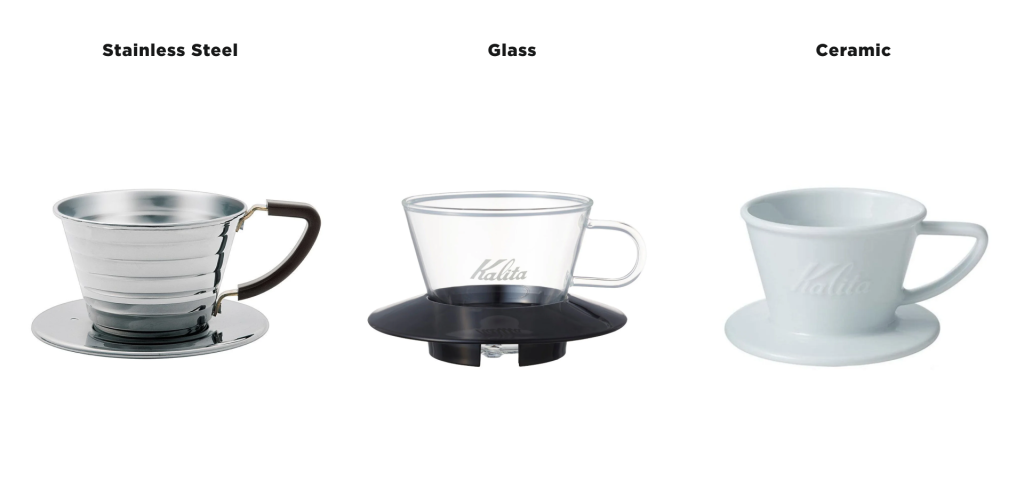
The dripper is available in three different materials: ceramic, steel, and glass. The ‘Made in Japan’ series includes handcrafted pieces by Japanese artisans, such as the Hasami ceramic, Tsubame (copper/steel), and Sagan (sandstone).
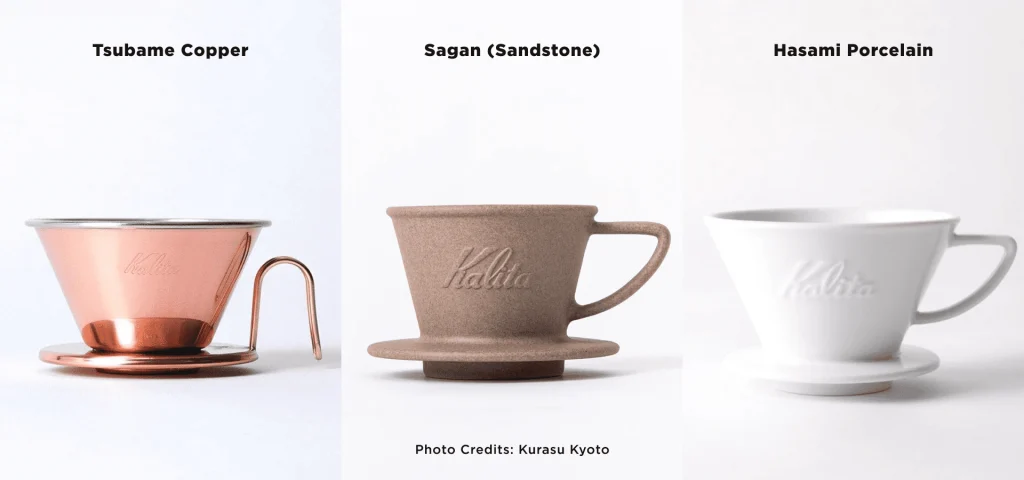
Brewing Experience with Kalita Wave 155 Stainless Steel
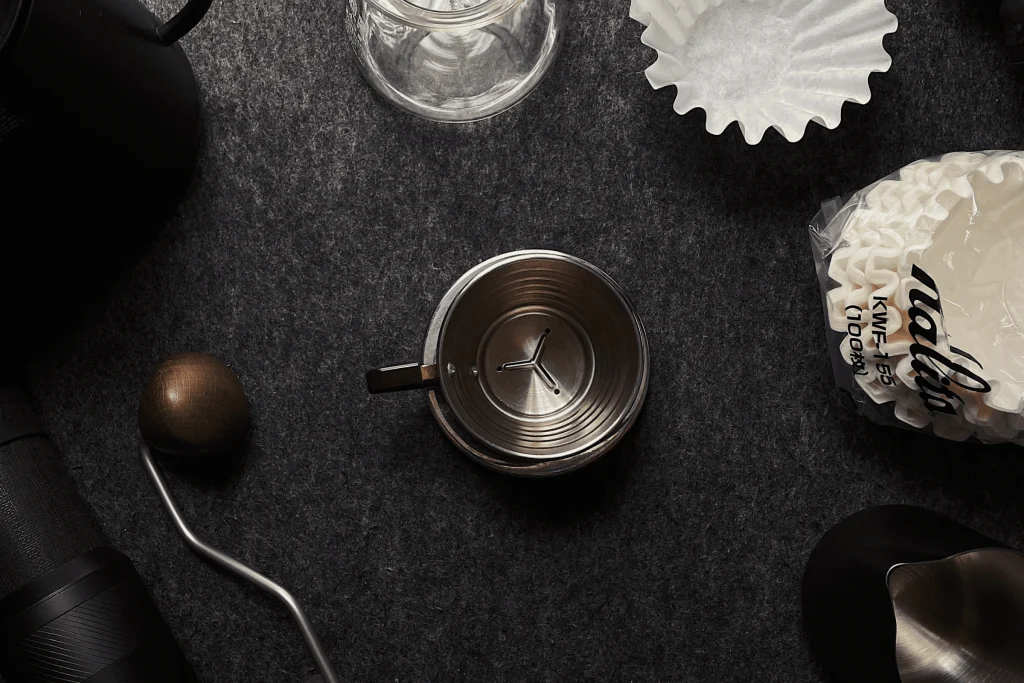
The Kalita Wave 155 Stainless Steel features a retro aesthetic that evokes a sense of nostalgia. Crafted from steel, it retains heat well once pre-warmed. The dripper has a moderately fast flow rate, thanks to its classic three-hole bottom design.
I’ve been brewing with the Kalita Wave 155 Stainless Steel since 2020. It delivers a bright taste when served hot and a deeper body once it cools down. I typically use the 3-pour method, similar to the Hario V60 3-pour method.
Kalita Wave 155 Brewing Recipes
The first recipe features a pulse-style technique inspired by my trip to Fukuoka (see video above). It is particularly well-suited for medium-dark roast coffee.
Brewing Method
1. Pre-wet the paper filter with a slow center pour from the bottom of the dripper.
2. Add 12.5g of coffee and give a slight shake.
3. Pour 37.5g of water for the bloom. Wait for 30 seconds.
4. 0:30-0:40 – Pour up to 75g (+37.5g) in concentric circles. (1st Pulse)
5. 0:50-1:00 – Pour to 100g (+25g) with concentric circles. (2nd Pulse)
6. 1:10-1:20 – Pour to 125g (+25g) with concentric circles. (3rd Pulse)
7. 1:30-1:40 – Pour to 150g (+25g) with concentric circles. (4th Pulse)
8. 1:50-2:05 – Final pour to 200g (+50g) draw a circle by pouring from the center to the outer corners of the brewer.
9. Allow the coffee to drawdown for 30 seconds at 2:30
10. Remove the brewer and stir the coffee before serving.
The second recipe is a straightforward 3-pour method that works well with most specialty coffee.
Brewing Method
1. Pre-wet the paper filter with a slow center pour from the bottom of the dripper.
2. Add 12.5g of coffee and give a slight shake.
3. Pour 37.5g of water for the bloom. Wait for 30 seconds.
4. 0:30-0:50 – Pour up to 100g (+62.5g) in concentric circles.
5. 1:10 – 1:40 – Pour to 200g (+100g) by drawing a circle from the inner to outer corners of the brewer, then back to the center with a slow pour.
6. Allow the coffee to drawdown for 30 seconds at about 2:30
10. Remove the brewer and stir the coffee before serving.
Brewing Tips with Kalita Wave
If you’re experiencing drainage or clogging issues with your brew, adjusting your grind size can help resolve them. Since the material of the dripper heats up quickly, be cautious when over rinsing the paper filter and avoid touching it.
The filter papers for the Kalita Wave can become crinkly when wet. To prevent this, use a spoon to smooth out the base before applying water. Then, gently pour water over the base while pre-wetting the paper.
Kalita Wave vs Hario V60
Between the Kalita Wave 155 and the Hario V60, the Kalita Wave may highlight certain taste notes more prominently. However, for overall balance, the Hario V60 performs very well. Testing the Hario V60 metal dripper could provide additional insights into this comparison.
If you have been brewing with the Hario V60 and want to try your first flat-bottom brewer, the Kalita Wave 155 would be a good place to start.
Conclusion
Overall, the Kalita Wave 155 Stainless Steel is an excellent brewer that offers a bright, pleasant taste when served hot and develops a deeper body as it cools. The pulse recipe will provide clarity in medium-dark roast coffee, making it enjoyable and lighter to drink.
With its retro design, this brewer adds a unique touch to any collection. If you appreciate Japanese craftsmanship, you’ll find the Kalita Wave 155 a worthwhile choice, with options from the Tsubame, Hasami, and Sagan series to explore.
Thanks for reading. We hope you have gained some valuable insights from this post. Follow Art Of Brew on Instagram and Twitter or share your thoughts in the comments below.